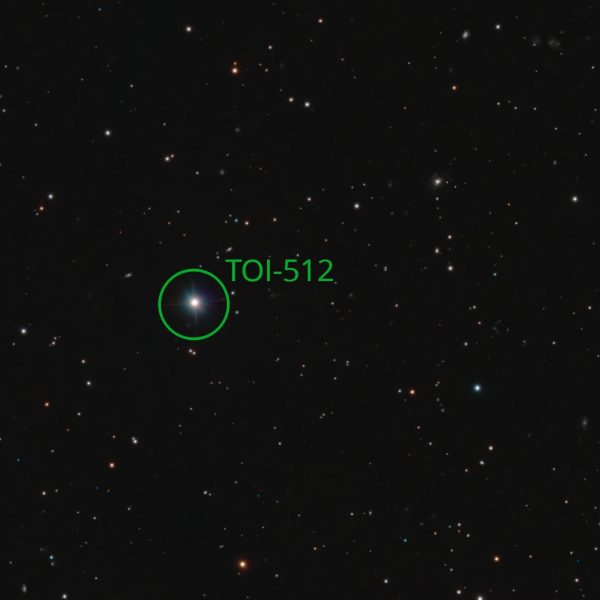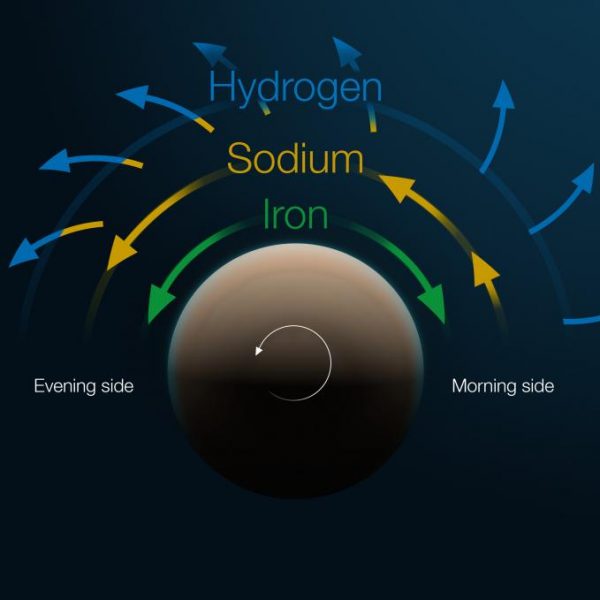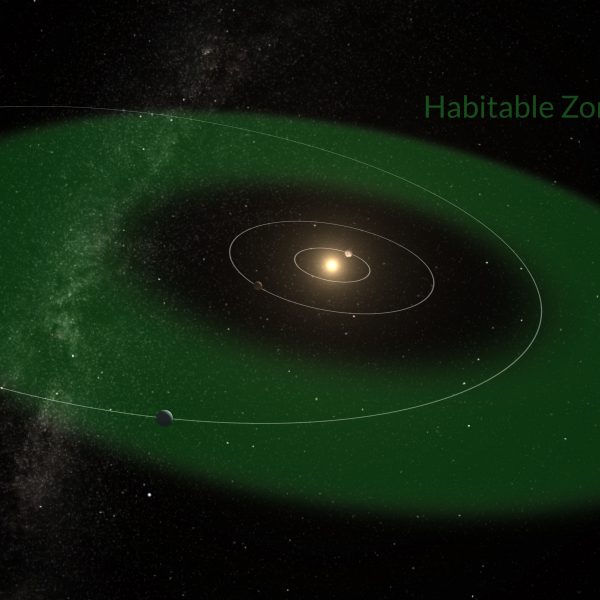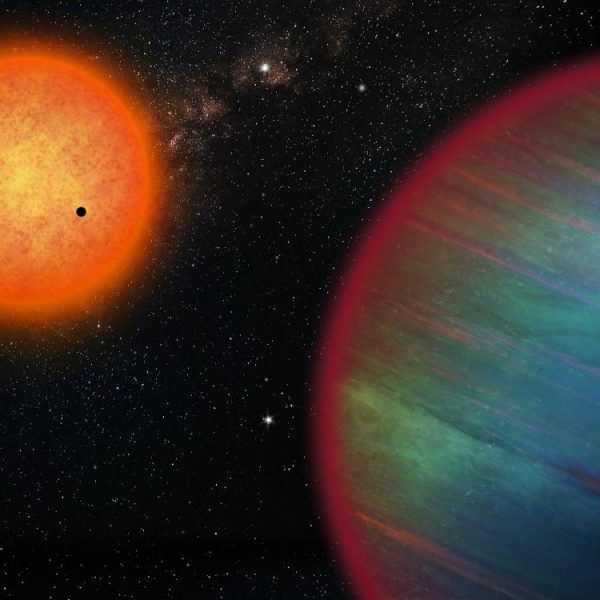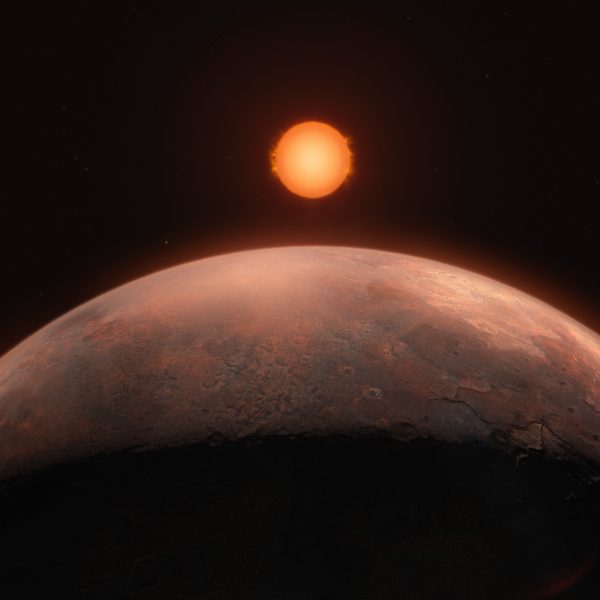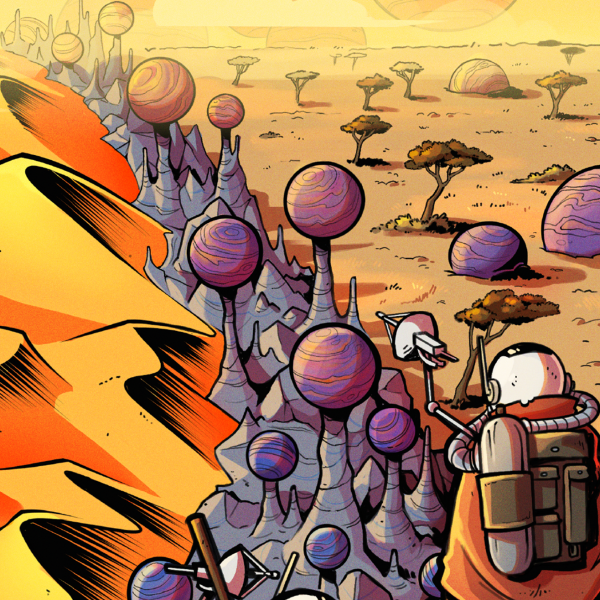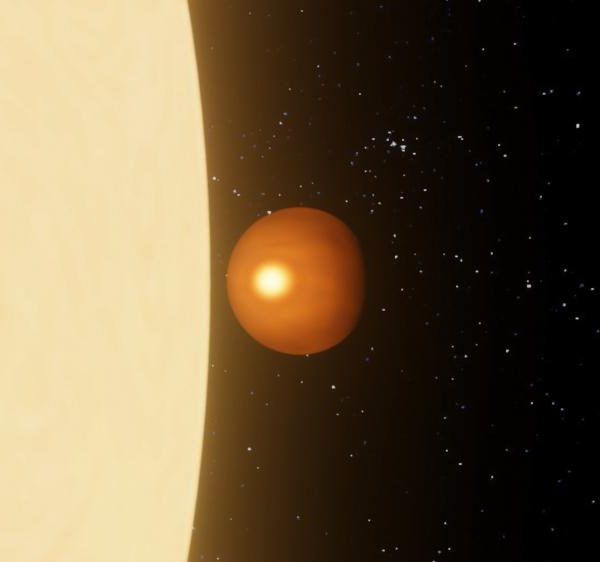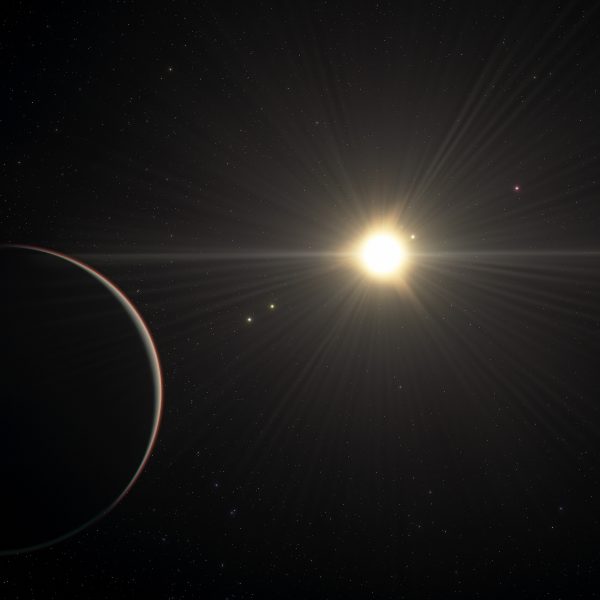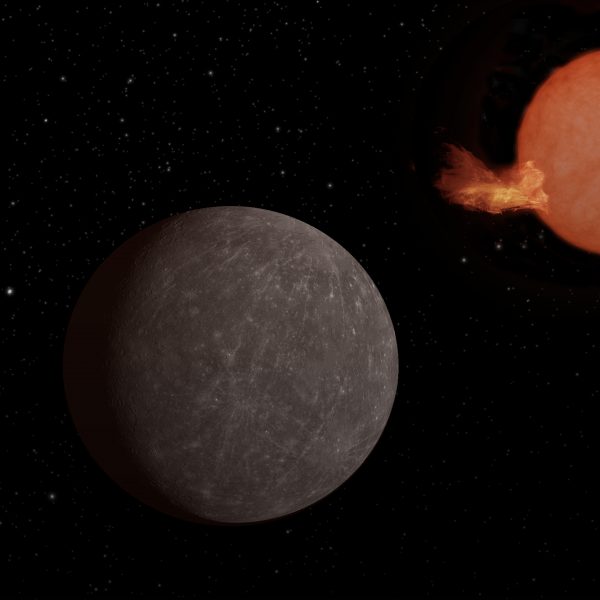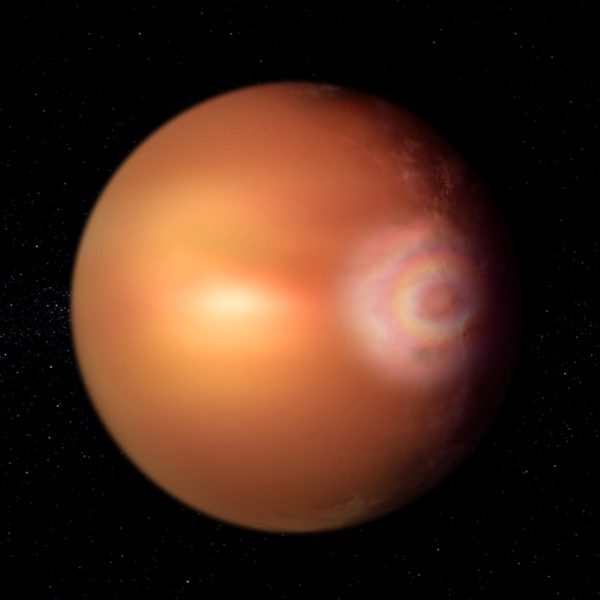Author Archive
Observational tango reveals a Super-Earth
An international team, including researchers from the University of Geneva (UNIGE) and the National Research Centre PlanetS, announces the discovery of a new super-Earth around a star slightly cooler than our Sun. Once again, the high-precision spectrograph ESPRESSO – designed and developed under the direction of the UNIGE – has made this discovery possible. The […]
Continue ReadingThis exoplanet’s extreme climate defies all models
WASP-121b is one of the most studied exoplanets. Known for its extreme conditions—such as clouds of metal vapor—it belongs to the category of ultra-hot Jupiters. To explore its mysteries, an international team of astronomers, including researchers from the University of Geneva’s (UNIGE) Department of Astronomy and the PlanetS National Research Center, combined observations from the […]
Continue ReadingA super-Earth laboratory for searching life elsewhere in the Universe
Thirty years after the discovery of the first exoplanet, more than 7000 have been discovered in our Galaxy. But there are still billions more to be discovered! At the same time, exoplanetologists have begun to take an interest in their characteristics, with the aim of finding life elsewhere in the Universe. This is the background […]
Continue ReadingNot all Hot Jupiters orbit solo
Hot Jupiters are giant planets initially known to orbit alone close to their star. During their migration towards their star, these planets were thought to accrete or eject any other planets present. However, this paradigm has been overturned by recent observations, and the final blow could come from a new study led by the University […]
Continue ReadingA sub-Earth detected around our neighbouring star Barnard
A team of scientists including researchers from the University of Bern, the University of Geneva and the NCCR PlanetS used the ESPRESSO Spectrograph to discover a sub-Earth mass exoplanet orbiting Barnard’s star, the second-closest star system to the Sun. This discovery helps to understand planetary formation around red dwarfs and provides insights into the diversity […]
Continue ReadingHidden exoplanets between the Neptunian desert and savanna
Astronomers have uncovered the ‘‘Neptunian Ridge’’, a newly identified feature in the distribution of exoplanets. This discovery, led by an international team including members of the University of Geneva, The NCCR PlanetS and the Centro de Astrobiología (CAB), highlights the complex dynamics within the Neptunian Desert, a region with a scarcity of hot Neptunes, and […]
Continue ReadingIron winds on an ultra-hot exoplanet
An international team of astronomers, including scientists from the University of Geneva (UNIGE) and the National Centre of Competence in Research PlanetS, has identified the presence of iron winds in the atmosphere of the ultra-hot Jupiter WASP-76 b. This planet with its extreme conditions – over 2000 degrees Celsius – is a prime target for […]
Continue ReadingThe density difference of sub-Neptunes finally deciphered
The majority of stars in our galaxy are home to planets. The most abundant are the sub-Neptunes, planets between the size of Earth and Neptune. Calculating their density poses a problem for scientists: depending on the method used to measure their mass, two populations are highlighted, the dense and the less dense. Is this due […]
Continue ReadingDiscovery of a planet around an ultra-cool star
An international team of astronomers – including members of the NCCR PlanetS, the University of Geneva (UNIGE) and the University of Bern (UNIBE) – has discovered, for only the second time, an Earth-sized exoplanet (SPECULOOS-3 b) around an ultra-cool Red Dwarf star. Red dwarfs account for 70% of the stars in our galaxy. The small […]
Continue ReadingCHEOPS detects a ‘‘rainbow’’ on an exoplanet
New observations from the space telescope point to the existence of a «glory» in the atmosphere of WASP-76b, a luminous phenomenon like a rainbow. The CHEOPS space telescope, whose scientific operations centre is based at the University of Geneva (UNIGE – co-leading house of the NCCR PlanetS), is providing new information on the mysterious exoplanet […]
Continue Reading
